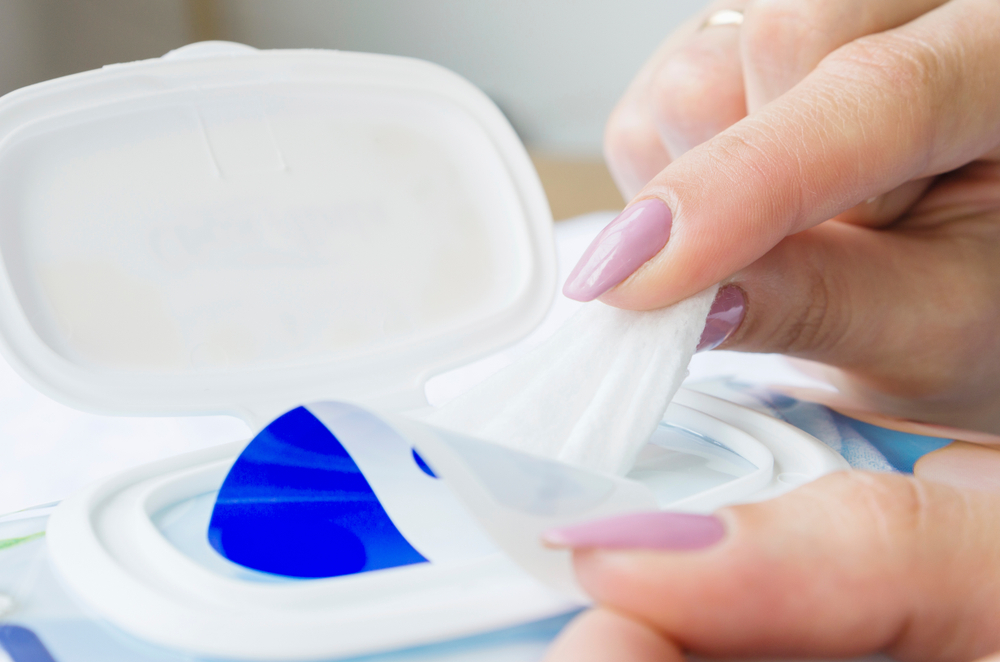
The coronavirus pandemic has made everyone using a lot of antibacterial wipes right now, but it is important to use them right!
People can’t get enough antibacterial wipes right now as they have changed their entire cleaning regimens. Even the less-germophobic people find themselves scrubbing every inch of their homes right now. Now more than ever, it is important to keep things clean and disinfected, but if you’re making any of these mistakes when using antibacterial wipes, you could be sabotaging your entire cleaning process!
Here are 10 mistakes you’re making with antibacterial wipes!
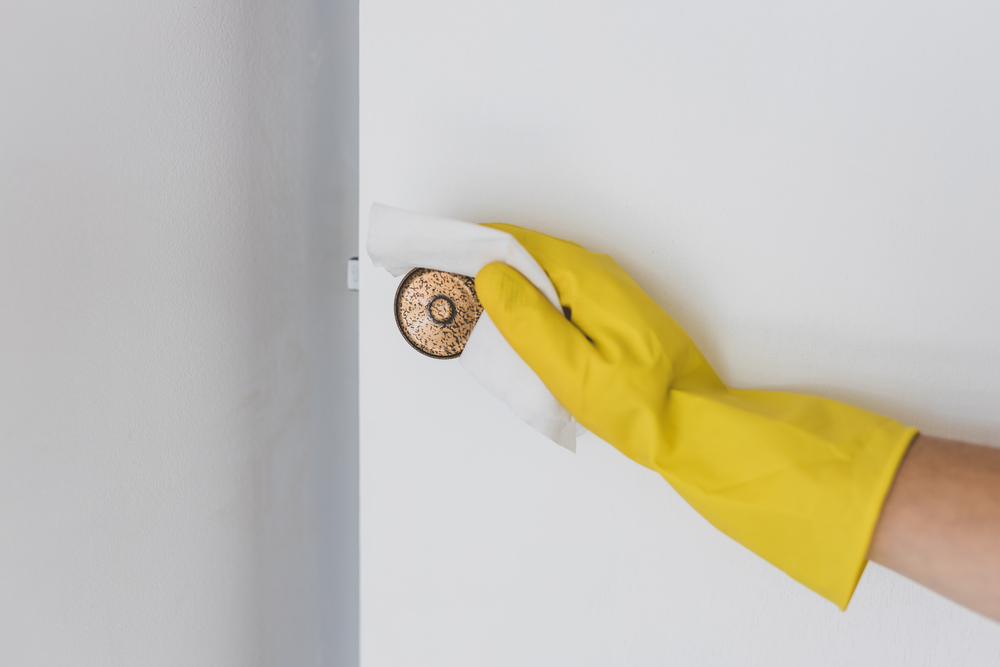
You’re using one antibacterial wipe for more than one thing
Many people use the same wipe to clean more than one item or surface. And I get it, it is easier to use a single wipe for cleaning different objects you may have in your house. For example, using one wipe to clean your whole kitchen or bathroom, because it seems less wasteful. However, there are many reasons you shouldn’t do that.
“One wipe should be used per area,” says Kathy Turley, director of marketing at Home Clean Heroes. “You don’t want to use the same wipe to clean the toilet handle and then use it on the front doorknob.”
Using the same wipe to clean multiple surfaces will only spread the germs from one place to another, instead of cleaning your whole bathroom as you wanted. Moreover, a single antibacterial wipe can never be enough to effectively clean more than one surface.
You’re not reading the label
I feel you, labels are boring and no one wants to read them. However, reading the label on your antibacterial wipes can help you understand how to use them properly in order to benefit of the greatest effect. The label reveals “how long the product must remain wet on a surface to inactivate all the bugs,” something you’ve probably never even thought about, explains Karen Daw, dental and medical OSHA and Infection Control coach and speaker. She says that in many cases, the surface should remain wet for at least three to four minutes for the antibacterial substance to do its job in killing the germs on the surface, and this is the kind of thing that is written on the label.
Additionally, the label will specify what types of microbes your antibacterial wipes are effective against. Don’t assume that every type of wipes kills every germ out there. After all, antibacterial wipes are meant to kill bacteria, and not necessarily viruses. “Don’t assume the antibacterial wipe is also effective against viruses,” says Daw. “The label will clearly list the time needed to inactivate specific bugs.”
You’re flushing it down the toilet
This mistake has been by many people especially recently, as people have been short on the toilet paper supply. It’s ok to use wipes, but it’s not ok to flush them down the toilet. Throw them away, even the ones where the packaging says “flushable.” I know that we have said previously that you should always read the label, but now you can just ignore it.
“The wipes are thicker than toilet paper and don’t break down as easily, and can get caught up in the pipes, causing potential blockages—or worse, overflow!” explains Turley.
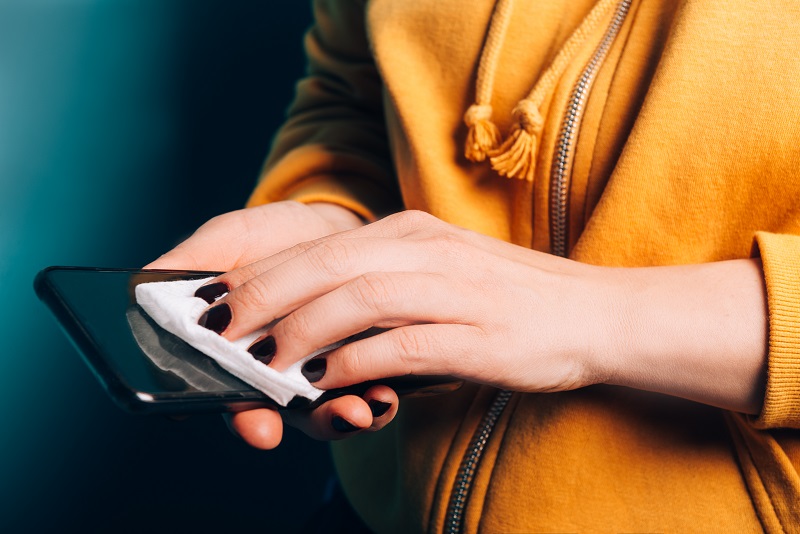
You’re using it to clean your phone screen
Antibacterial wipes aren’t made to be used on everything. Cleaning your electronics is definitely important, especially the phone which everyone is using more than it should, but you should know that using antibacterial wipes on it could actually be damaging.
“While the wipes are generally safe to use on your keyboards, they should be used on the back or non-glass parts of your phones only,” explains Turley. “The chemicals in the wipes can break down the coating on screens that is supposed to prevent fingerprint marks.”
You’re storing it improperly
Yes, mistakes can be made even regarding the way you’re storing it, not just using it. To be more specific, make sure to always close the packaging before using it, so that the wipes aren’t exposed to open air. “Most of the time, they have alcohol as a disinfectant method,” says Dr. Nidhi Ghildayal, PhD, a researcher with a focus on infectious diseases. “If you leave them open, the alcohol will dry out and your wipes will become useless.”
If you forgot to close the packaging and now your wipes are dried-up, you shouldn’t use it anymore, considering that most of its cleaning power will be ineffective.
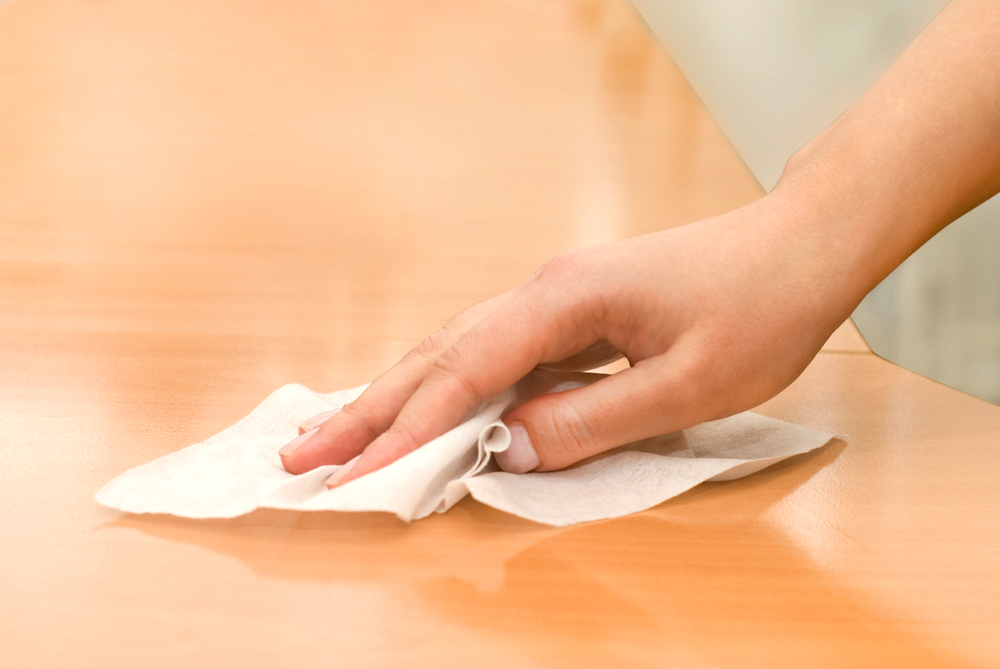
You’re using it on wood
Antibacterial wipes aren’t made to be used on wooden surfaces because it can damage it. “Any kind of wood flooring or furniture you own should not be cleaned with antibacterial wipes,” explains licensed health coach Jamie Bacharach.
The reason for it is that the porous wood will absorb the liquid from the wipes, resulting in damaging it. “These wipes may leave behind a stain and, unless otherwise specified, are typically not designed for use with wood.” And now you have another reason to read the label!
You’re using it on visibly dirty surfaces
This might sound strange to hear since cleaning is what it’s made for. However, if you’re using it on a visibly dirty surface, you could only move the dirt around, without cleaning it. Removing dirt from a surface is a totally different process than disinfecting it with wipes.
“A dirty surface makes it more difficult to disinfect,” explains Daw. “So you may need to give the surface a good scrubbing with one wipe (or just soap and water), then grab a second wipe to disinfect.”
You’re using it after its expiration date
You might not think that antibacterial wipes would have an expiration date, but Ghildayal points out that sometimes, in fact, it actually doesn’t. “You might not find an expiration date on your wipes,” he told RD.com, “but you should generally not use them more than two years after purchase, at the most.”
“If they have a weaker scent then usual when you reopen them for use, they are likely too old to be used,” Ghildayal suggests. Of course, that isn’t a problem for us right now, considering that we’re using way too many antibacterial wipes and products these days, but it’s still good to know that it has an expiration date.
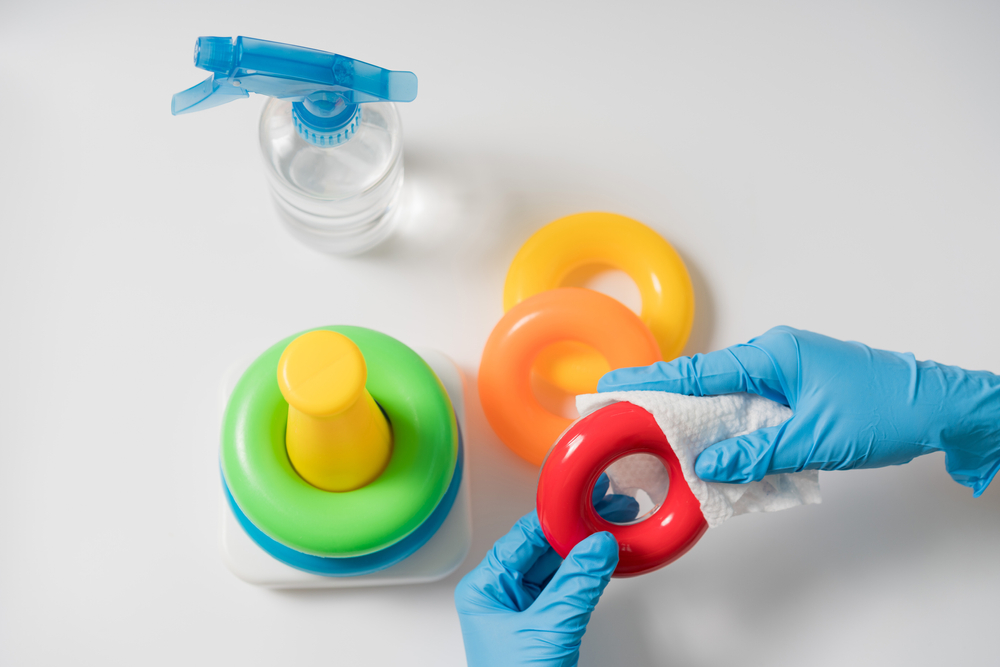
You’re using it for kids’ toys and pet bowls
It’s important to know that cleaning products are not meant to be ingested, especially by children. You shouldn’t use it to clean your children’s toys (especially baby toys, which we all know will instantly be put in their mouths) and pet’s food bowls.
“Antibacterial wipes carry chemicals, which are…left behind on the surfaces they come into contact with,” explains Bacharach. “Any object that a pet (or kid!) may put in their mouth or lick should be cleaned with a water-based, non-chemical solution to ensure safety.”
You’re using it as your only cleaner
Antibacterial wipes are meant for helping you to quickly disinfect a surface that was previously clean. It is definitely not meant to provide a “deep clean” or clean specific surfaces that need a certain cleaning product. “They are not good enough to be the sole cleaner for your kitchen and bathroom surfaces,” specifies Jon Gibbons of Smart Vacuums. “Antibacterial wipes are great for a quick rundown, but they will not leave the kitchen or bathroom sparkling under the surface.”












































